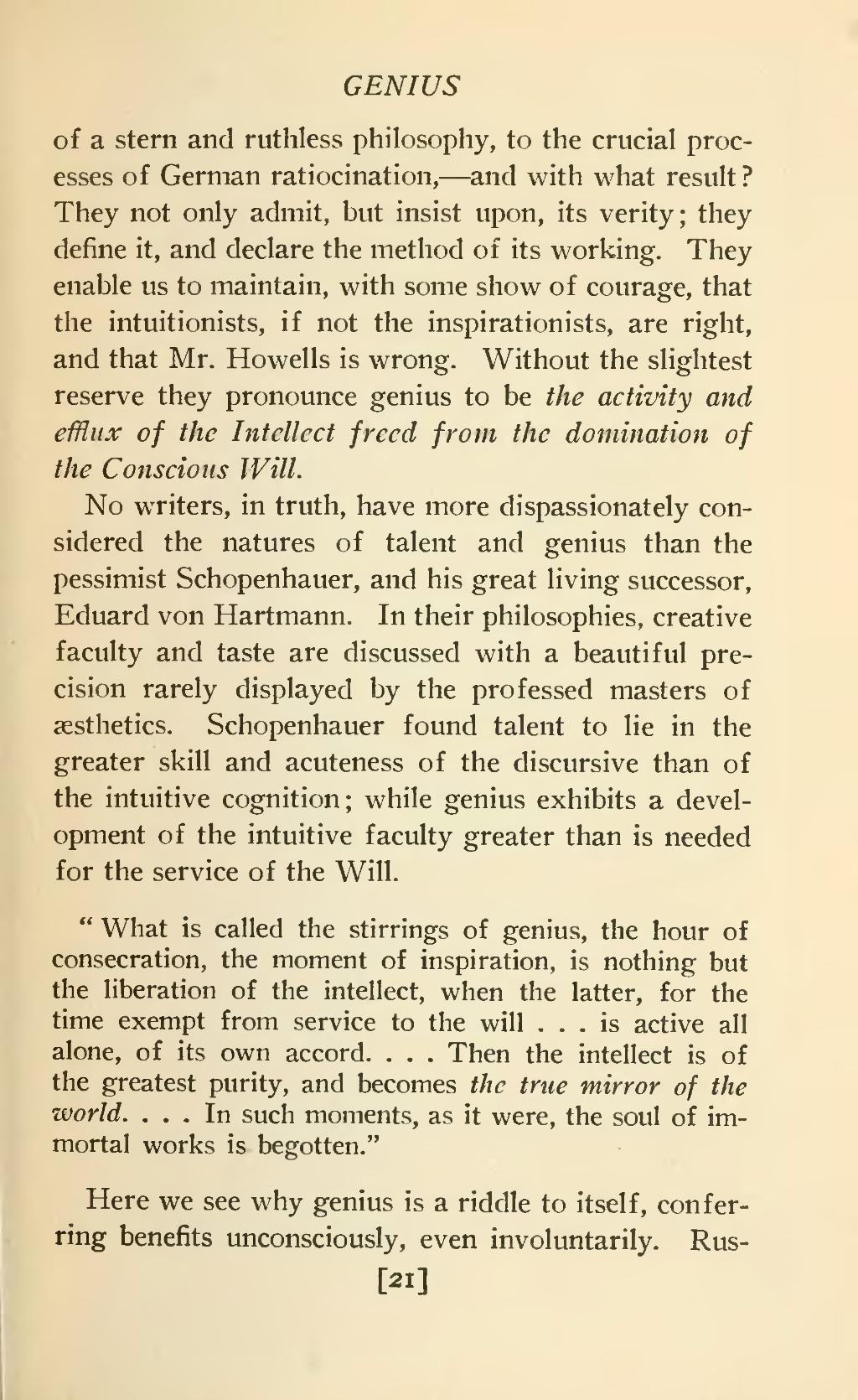GENIUS
of a stern and ruthless philosophy, to the crucial processes of German ratiocination,—and with what result? They not only admit, but insist upon, its verity; they define it, and declare the method of its working. They enable us to maintain, with some show of courage, that the intuitionists, if not the inspirationists, are right, and that Mr. Howells is wrong. Without the slightest reserve they pronounce genius to be the activity and efflux of the Intellect freed from the domination of the Conscious Will.
No writers, in truth, have more dispassionately considered the natures of talent and genius than the pessimist Schopenhauer, and his great living successor, Eduard von Hartmann. In their philosophies, creative faculty and taste are discussed with a beautiful precision rarely displayed by the professed masters of æsthetics. Schopenhauer found talent to lie in the greater skill and acuteness of the discursive than of the intuitive cognition; while genius exhibits a development of the intuitive faculty greater than is needed for the service of the Will.
"What is called the stirrings of genius, the hour of consecration, the moment of inspiration, is nothing but the liberation of the intellect, when the latter, for the time exempt from service to the will. . . is active all alone, of its own accord. . . . Then the intellect is of the greatest purity, and becomes the true mirror of the world. . . . In such moments, as it were, the soul of immortal works is begotten."
Here we see why genius is a riddle to itself, conferring benefits unconsciously, even involuntarily. Rus-
[21]
